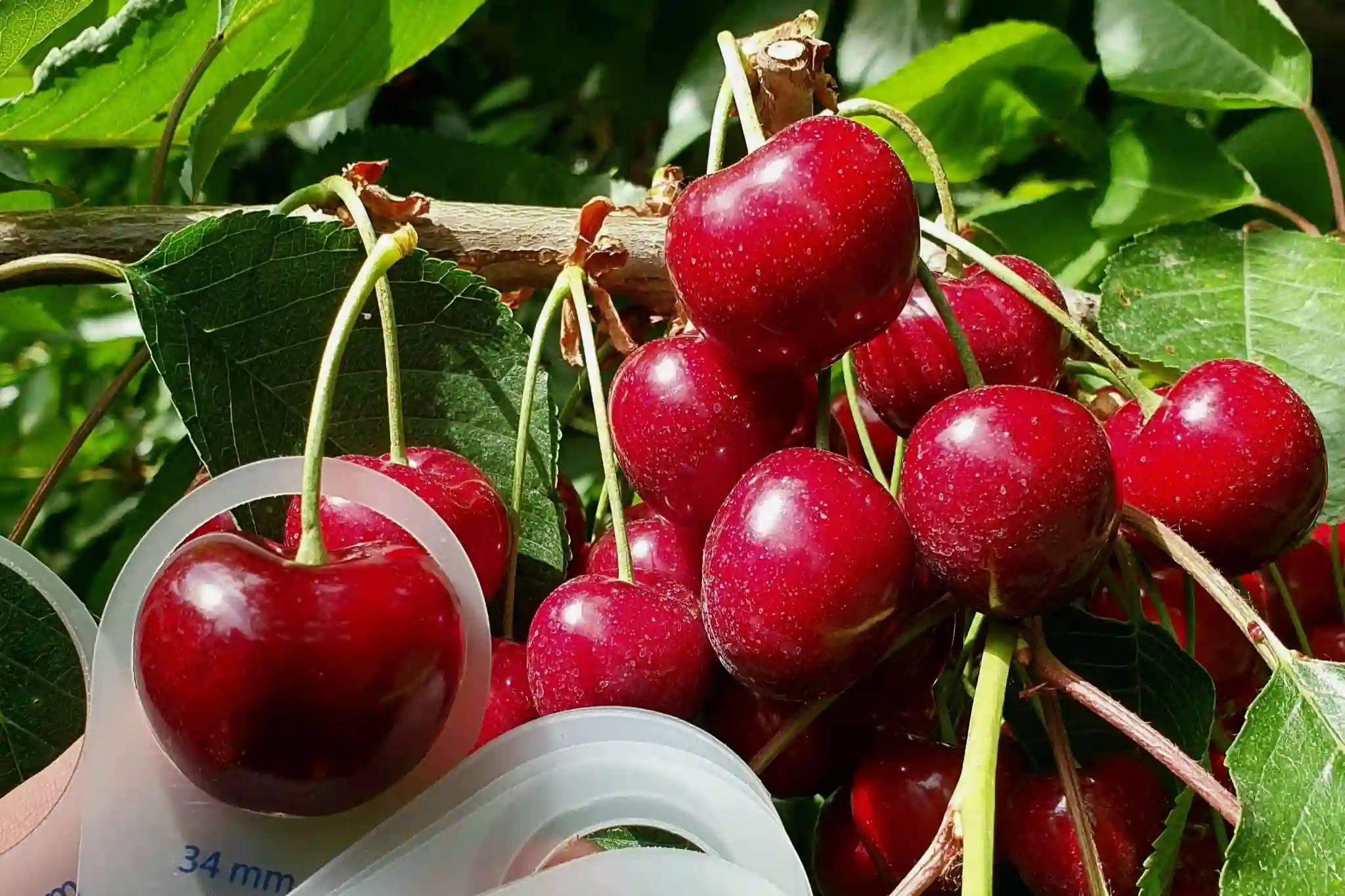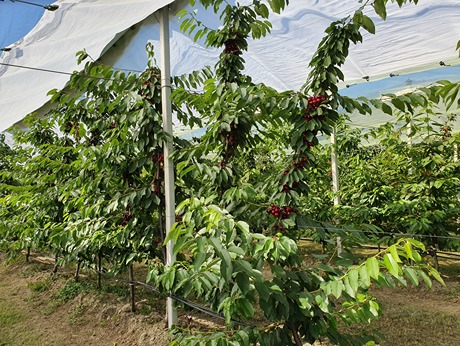Sweet cherry post-harvest preservation is a crucial challenge for the entire supply chain. This non-climacteric fruit is highly perishable and subject to problems such as weight loss, stem browning, loss of firmness, and fungal diseases.
The limited storage life aIects not only market availability but also competitiveness. In recent years, research has increasingly focused on the development of innovative technologies capable of extending the cherries shelf life without compromising their qualitative and nutritional traits.
Among these, the use of the plant growth regulator 1-methylcyclopropene (1-MCP) has emerged as an interesting option. 1-MCP is well known for its ability to delay ripening processes in many climacteric fruits by acting as an ethylene inhibitor.
However, its eIectiveness on non-climacteric fruits such as cherries has so far been studied only partially and with mixed results.
Application and experimental results
A recent study, carried out in Wierzchucice, Poland, and still under review, analyzed the impact of diIerent doses of 1-MCP (1, 2, and 4 μL/L), applied via slow-release stickers (Vidre+ technology), on two commercial sweet cherry cultivars, “Kordia” and “Regina”, compared with untreated controls.
After an initial 24-hour exposure, fruits were stored at 2–3 °C and 90–95 % relative humidity for 21 days.
The results showed that 1-MCP application improved sweet cherry storability. Weight loss was reduced by up to 31.6% compared to untreated samples, with doses of 2 and 4 ppm proving particularly eIective.
Flesh firmness, a key parameter for both marketability and consumer acceptance, was better preserved in treated fruits, especially in the “Regina” cultivar.
Impact on quality and nutrition
Regarding visual quality, stem browning, often a decisive factor in consumer purchasing choices, was significantly limited by 1-MCP, particularly at intermediate and higher doses.
From a nutritional standpoint, treated cherries maintained higher levels of vitamin C, total polyphenols, and anthocyanins, compounds strongly linked to antioxidant capacity and health benefits.
In particular, vitamin C content remained more stable after 21 days in samples treated with 4 ppm of 1-MCP, while antioxidant capacity (measured by the FRAP method) declined less sharply compared to the control.
Polyphenols, which usually decrease during storage, also showed greater stability with 1-MCP treatment.
Conclusions and sustainability impact
In conclusion, the study demonstrates that the application of 1-MCP via stickers is a practical and eIective solution to extend sweet cherries shelf life while preserving their nutritional and antioxidant properties.
The two tested cultivars showed promising responses, with some varietal diIerences that warrant further investigation. These findings are relevant not only for maintaining fruit quality but also from a sustainability perspective.
According to FAO reports, more than 460 million tons of fruit and vegetables are wasted every year worldwide, with huge environmental and economic consequences.
Therefore, exploring new preservation technologies is essential to help reduce these losses, extend marketing periods, and improve the logistical management of the supply chain.
Source: Wichrowska, D., Wolan, A., & Malefyt, T. (2025). Antioxidant Potential and Storage Stability of Sweet Cherries (Prunus avium L.) Depending on the Use of 1-Methylcyclopropene. PRE-PRINT – Under review https://doi.org/10.21203/rs.3.rs-6546955/v1
Image source: Agro Market
Andrea Giovannini
University of Bologna (IT)
Cherry Times - All rights reserved










